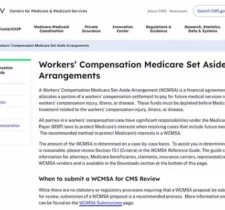Under Fla.Stat. § 440.25, all parties in a workers’ compensation case are required to participate in a mediation within 130 days after the filing of a petition for benefits. If you are like most people, you are probably thinking “What is a mediation and how should I prepare for it?” This is the reaction our workers compensation attorneys receive from the vast majority of our clients, because although mediations are required in a Florida workers’ compensation case and are also becoming extremely common in other forms of litigation, most people are unfamiliar with the mediation process.
What is a mediation?
Mediations are a form of alternative dispute resolution, and the logic behind this litigation tool is simple. Under Article 1 Section 21 of the Florida State Constitution, the courts of the state of Florida are “open to every person for redress of any injury, and justice shall be administered without sale, denial or delay.” Although workers’ compensation cases are not decided in traditional “courts,” but rather, by a judge of compensation claims. Your right to access the workers compensation system is constitutionally guaranteed. However, workers’ compensation hearings and traditional trials are expensive endeavors that often involve thousands of dollars in costs and pass valuable time. Florida, like many states, require litigants in a workers’ compensation case to participate in a mediation in order to see if the dispute between the parties can be resolved without having to invest the time and resources needed to resolve the claim via a final hearing with a Judge of Compensation Claims.
The reason mediation is mandatory and beneficial is that mediations can help forego additional litigation. For example, forms of alternative dispute resolution (ADR) utilized by the Department of Justice in 2017 had a 77% success rate, and 50% of these cases were resolved by a private or judicial mediator. The success of mediations in Florida is evidenced by the fact that Florida Courts have utilized various forms of ADR, including mandatory mediations, for over 30 years.
Who Participates in a Mediation?
It’s important to understand that all parties must participate in a mediation. Meaning, the following individuals will usually be present at and participate in a mediation: the adjuster assigned to your file, the defense attorney representing the insurance company, the plaintiff i.e. the person that filed the claim, and the plaintiff’s attorney. The mediator, the individual that controls the mediation process, will also be present, there are a few things you should keep in mind when communicating with a mediator:
- First, everything you share with a mediator is confidential with the exception of disclosures amounting to certain forms of misconduct or criminal activity.
- Second, a mediator is required not to repeat confidential statements unless you have given them permission to do so or their disclosure of such statements is required or permitted by law.
- Finally, keep in mind, a mediator’s goal is to try to resolve a case in a manner that both parties’ will accept. As such, fully participating in the mediation is generally beneficial to your claim, because at the very least, it allows you to see where the insurance company stands with respect to a settlement or claim. This information can be vital to your workers’ compensation attorney even if the mediation is unsuccessful.
What is the Mediation Setting?
Opening statements do occur in some mediations, where all parties are in the same room and each respective attorney makes a statement; however, it is common place for each side to break off from the beginning and forego formal opening statements. The mediation setting is unique in that the only two people you will normally see are the mediator and your workers’ compensation attorney. Essentially, you and your lawyer will be sitting in one room, and the defense attorney representing the insurance company and the adjuster assigned to your file will be sitting in another room. Adjusters routinely appear by phone for a mediation, so the insurance company’s lawyer is often the only person physically present at the mediation. Importantly, unlike other events, such as depositions, a family member is allowed to be present with you during the mediation for advice. This can be particularly beneficial during mediations where the goal of the proceeding is to settle your claim.
The Mediation Process
The mediator will usually begin the process by first speaking with each party to determine each side’s respective legal position regarding the claim or case. The mediator will then go back and forth to each room to try and negotiate with each party to reach an acceptable resolution to the dispute or a settlement of the case in its entirety. This process continues until an agreement to resolve the claim or the entire case has been reached, or it becomes clear that the parties can not reach a resolution in which case the mediator will declare an impasse.
Private vs. State Mediation
The distinction between a private and state mediation in a Florida workers’ compensation case is subtle, but important. As stated, after a petition for benefits is filed, all parties in a workers’ compensation case are required to participate in a mediation. The mediation can be either a state mediation in which case the mediator is an employee of the state and is therefore compensated for their services by the state, or the mediation can be a private mediation in which case the parties, usually the insurance company in Florida worker’s compensation cases, will pay for a private mediator to conduct the mediation. Although private mediations are often utilized after a petition for benefits has been filed, a private mediation, unlike a state mediation, can take place with or without a pending petition for benefits, and this type of mediation can often be more beneficial than state mediation for a few reasons.
First, if an insurance company is willing to pay for a private mediator, it generally implies that they are motivated to try to settle a case or reach a resolution to a claim. Second, private mediators have the ability to focus on resolving one case, whereas state mediators, in the interest of efficiency, will often have multiple mediations going on at the same time. Finally, private mediators are often chosen based on their ability to successfully resolve disputes, and as a result, they are often highly motivated to bridge gaps and bring a satisfactory resolution for the parties involved.
Workers’ Compensation Attorneys in Tampa, FL
Navigating the workers’ compensation system can be complicated and stressful, which is why choosing the right attorney to represent you is so important. At our firm, our workers compensation attorney is dedicated to helping you through this challenging time in your life, so if you have been injured at work, call our office for a free, confidential consultation.









